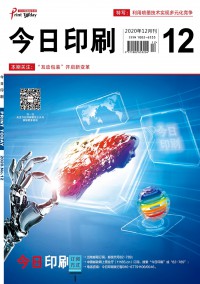问路英语
前言:想要写出一篇令人眼前一亮的文章吗?我们特意为您整理了5篇问路英语范文,相信会为您的写作带来帮助,发现更多的写作思路和灵感。

问路英语范文第1篇
一、态度方面
1. 首先要有礼貌,最好停下来等候或缓步走向你想问路的人,表情不要太紧张,不要急步向他人走去,否则对方会怀疑你的动机。
2. 千万不要伸手搭对方的肩或手臂,因为这是不礼貌的行为。
3. 问路时要注意同对方保持一定的距离,尤其是问一位女士时,尽量不要使用手势。西方人的空间意识较强,陌生人离他们太近会使他们觉得很不自在,甚至觉得是一种威胁。
二、用词方面
1. 问路时应首先说一声“Excuse me”,这样既可以引起对方的注意,又不失礼貌。
2. 当你没听清时,你可以说一声“Excuse me, would you please say it again?”(对不起,请您再说一遍好吗?)或“I beg your pardon?”(对不起,请再说一遍好吗?)等,礼貌地要求对方重复一遍。
3. 问完路后,千万不要忘记向对方说句“Thank you for helping me”或“Thank you”。
4. 问路时经常会用到“向左(右)拐”这样的表达,英语对此有两种常见的说法,即 turn left (right) 或 turn to the left (right)。表示“在左(右)边”,英语用介词 on 或 at 均可。
5. 别人为你指完路后,有时还会最后说上一些句子,一方面是表示他的引路信息介绍完毕,另一方面也是为了表明他的指路信息是可靠的。这类句子通常有:
You can’t miss it. 你不会找不到的。
You are sure to get there. 你一定会到达那儿的。
You can’t go wrong. 你不会走错的。
三、背景方面
我国的交通规则是“行人靠右”,而在英国你会看到这样的交通标牌:Keep to the left. 靠左边走。要注意两者的区别。
四、句式方面
1. 问路的固定句式举例
Excuse me, can you tell me where the railway station is? 对不起,请问火车站在哪儿?
Excuse me, but can you tell me the way to the train station? 劳驾,请问去火车站怎么走?
Excuse me, could you tell me which is the way to the nearest hospital? 请问去最近的医院怎么走?
Excuse me, would you please show me the way to the post office?请告诉我去邮局怎么走好吗?
Excuse me, would you mind telling me the way to the police station? 对不起,请告诉我去警察局怎么走好吗?
Excuse me,could you give me some directions? 请你给我指指路好吗?
Excuse me,can you direct me to the post office? 请问到邮局怎么走?
Excuse me,where’s the men’s (ladies’),please? 请问男(女)厕所在哪?
Excuse me,where’s the bus station,please? 请问公共汽车站在什么地方?
Excuse me, how can I get to No. 1 Middle School? 请问去一中怎么走?
Excuse me, is this the right way to the People’s Park?请问去人民公园走这条路对吗?
Is this the only way to get there? 去那儿只有这一条路吗?
Which is the best way to get there? 去那儿走哪条路最好呢?
2. 引路的固定句式举例
Go down this street, and turn to the left at the first crossing. 沿着这条街走,在第一个十字路口向左拐。
Go straight on, then turn right at the second crossing. 一直走,在第二个十字路口向右拐。
Go down the road and you’ll come to a bus stop. 沿着这条路走,你会走到一个公共汽车站。
Go straight ahead about 300 meters. 往前一直走300米。
Go straight ahead until you come to a tall building,then turn left. 一直往前走,走到一座高楼,然后向左拐。
Go this way about 5 minutes. When you come to a lane, turn right. 沿着这条路大约走5分钟。当你走到一条小巷时,然后向右拐。
Keep going until you see a big white building on your left. 继续往前走,一直走到左边有座白色建筑。
Keep straight on for two blocks. 一直往前走,走过两条马路。
Walk until you get to the second crossing and then turn right. 一直走到第二个十字路口,然后向右拐。
Take the first turning on [to] the left. 在第一个拐弯处向左拐。
Just follow this street two blocks. 沿着这条街走过两个街区就到。
Cross the street and turn left. 过了这条街,然后向左拐。
It’s just around the corner. 就在拐角处。
It’s just across the street. 就在街那边。
It’s opposite the post office. 在邮局对面。
It’s next to the hospital. 就在医院隔壁。
It’s near the train station. 就在火车站附近。
It’s about five minutes’ walk. 走路五分钟就到。
It’s about half an hour’s ride. 乘车大约要半小时。
It’s only two blocks. 只过两条马路就到。
It’s at the end of the street. 在这条街的尽头。
Take the No.5 bus here, and get off at the next stop. 在这里乘5路车,在下一站下车。
五、实战训练
1. 你(A)新到一个城市,向一个过路人(B)打听邮局在哪儿。
A:Excuse me, could you tell me where the nearest post office is? 对不起,请问最近的邮局在什么地方?
B:Yes, it’s that way, about two blocks from here. 走那条路,过两条马路就到了。
A:On the right or left side of the street? 在马路的右边还是左边?
B:On the left. 在左边。
A:Thank you very much. 太感谢你了。
B:You’re welcome. 不客气。
2. 你(A)新到某市,不知道火车站在哪儿,向某人(B)打听。
A:Excuse me, but can you tell me the way to the railway station? 请问去火车站怎么走?
B:Just go straight along this street, turn left at the first crossing and walk straight ahead about 100 meters. You can’t miss it. 沿着这条街一直往前走,到第一个十字路口向左拐,然后再往前走100米,你就到了火车站。
A:About how long will it take me to get there? 去那儿大约要多少时间?
B:It’s about 10 minutes’ walk,I think. 步行大概要十分钟。
A:I see. Is there a bus I can take? 我明白了,可以乘公共汽车去吗?
B:Yes, you can take the No.5 bus over there. Get off at the next stop. 可以,你可以在那儿乘5路车,在下一站下车。
A:Thank you so much for your help. 非常感谢你的帮助。
B:It’s my pleasure. 不客气。
3. 你(A)新到某地,向旁人(B)询问厕所在哪儿。
A:Excuse me, could you tell me where there’s a men’s room? 请问哪儿有男厕所?
B:There’s one just outside this building. Turn to your right and walk about 50 meters. It’s a small white thing. 这楼外面就有一个,向右拐,走50米即到,是座小白房。
A:I suppose there a sign on the outside. 厕所外面有牌子吧?
B:Yes. There’s a sign in English and Chinese. 有,牌子是用中英文写的。
A:Thank you. 谢谢。
B:That’s all right. 不客气。
4. 你(A)邀你的同学(B)到你家玩,但他不知道怎么去,向你询问。
A:Please come to my home tomorrow if you are free. 明天有空请到我家里来。
B:OK, I will. But where do you live? 好,你住在什么地方?
A:48 York Road. It’s not far from here. 约克路48号,离这儿不远。
问路英语范文第2篇
(1)向他人问路时,宜主动到距对方适当的距离内,根据对方年龄、性别等特征恰当地予以尊称,并对打扰对方表示歉意,然后清晰简明地说明自己的意图。得到答复后,表示谢意。如对方表示不清楚或不确定,也应表示谢意,并转问他人,不可纠缠不已。
(2)接受他人问路时,注意倾听对方请求,指明交通线路或需乘坐的交通工具;如口头表达不清,可征得对方同意后带路。自己不清楚或不确定的,应致歉意,并代为请其他人予以帮助。
不可把他人招呼到自己跟前问路。不可对他人问路不理不睬或漫不经心随意指,更不可指错路。
问路英语范文第3篇
1、lichou away gradually, such as at continuously infinite.
离愁渐远渐无穷,迢迢不断如春水。
2、life is apure flame,and we live by an invisible sun within us.
生命是一束纯净的火焰,我们依靠自己内心看不见的太阳而存在。
3、Don't cry because it is over, smile because it happened.
不要因为结束而哭泣,微笑吧,为你的曾经拥有。
4、Always put yourself in others shoes. If you feel that it hurts you, it probably does hurt the person, too.
要常常设身处地为别人着想。当你觉得这样会使自己受到伤害,对方可能早已经受伤了。
5、There are moments in life when you really miss someone that you want to pick them from your dreams and hug them for real. Hope you dream of that someone.
人总有思念别人的时候,你渴望他在你梦境里出现,与你实实在在的拥抱!希望你能梦见这个人。
6、Don't cry because it came to an end. Smile because it heppened.
不要因为它的结束而哭,应当因为它的发生而笑。
7、If they did, and life-long in exist.
两情若是久长时,又岂在朝朝暮暮。
8、In the days to BiYiDiao, the two trees with branches interlocked forever.
在天愿作比翼鸟,在地愿为连理枝。
9、God finds himself by creating.
神从创造中找到他自己。
10、There will always be people who'll hurt you, so you need to continue trusting,just be careful.
生活中总会有伤害你的人,所以你仍然需要继续相信别人,只是小心些而已。
11、I love you not because of who you are, but because of who I am when I am with you.
我爱你,不是因为你是一个怎样的人,而是因为我喜欢与你在一起时的感觉。
12、My end is no regrets, the Iraqi people to wave.
衣带渐宽终不悔,为伊消得人憔悴。
13、I love you not for whom you are, but who I am when I 'm by your side.
我爱你并不是因为你是谁,而是因为我在你身边的时候我是谁。
14、Silkworm die silk, wax torch party ash into tears beginning to dry.
春蚕到死丝方尽,蜡炬成灰泪始乾。
15、Sometimes, the everlasting hate have no unique period.
天长地久有时尽,此恨绵绵无绝期。
16、Become a better person and be sure to know who you are before meeting someone nes and hoping that person knows who you are.
做一个更好的人,确信在遇见一个新的人之前知道自己是谁,也希望那个人知道你是谁。
17、It hurts to love someone and not be loved in return,but what is the most painful is to love someone and never finding the courage to let the person know how you feel.
爱上一个不爱自己的人是痛苦的。但最痛苦的,莫过於你所爱的那个人并不知道你爱他,而你也没有勇气让他知道。
18、He has made his weapons his gods. When his weapons win he is defeated himself.
他把他的刀剑当作他的上帝。当他的刀剑胜利的时候他自己却失败了。
19、During the whole life, you will regret for two things:one is that you don't get the one you love and the other is the one you love is not happy.
人的一生,有两种遗憾最折磨人:一是得不到你心爱的人;二是心爱的人得不到幸福。
问路英语范文第4篇
10月1日,我的朋友嘉嘉过生日,她请我和她的同学宋革参加她的生日聚会。
我们去了麦当劳,这里的人可真多呀!不过没关系,嘉嘉的爸爸刘叔叔预订了座位。我们一起吃汉堡、喝可乐、吃薯条,唱生日歌、吹生日蜡烛、吃生日蛋糕。
一位麦当劳的阿姨过来,她陪我们做游戏。她让我们叫她夏甜甜就行了。阿姨又问我们的名字,我们三个小朋友大大方方的自我介绍了一番。夏甜甜阿姨拿出了一个大的纸方盒,这个盒子很漂亮,花花绿绿的。夏甜甜阿姨告诉我们这个盒子叫做麦当劳百宝箱。盒子上有许多图形,每个图形的下面都有一个方框,方框里有一张纸条。夏甜甜阿姨告诉了我们游戏规则:“你们一个人选择一个图案,把图案按下去,拿出里面的纸条,按照要求做游戏。”
我们开始玩了。首先是宋革,她拿到的纸条上写着“跳一支舞”。宋革跳起了舞,她边唱边跳,跳得很好,就像学过舞蹈的人一样,我们都情不自禁地鼓起掌来。轮到嘉嘉的了,她抽到的纸条上问“你最喜欢吃麦当劳的什么?”“冰激凌。”嘉嘉轻松地回答。该我的了,我慢慢地按了下去,边按心里想:“我可不会跳舞,千万别拿到跳舞的纸条。”耶!太幸运了,我拿到的纸条上写着“和另一个人进行表演”。我选嘉嘉和我一起唱歌,我们两个人一起唱《两只老虎》这首歌。
玩完了这个游戏,我们还玩了“看谁反应快”和“接乒乓球”这两个游戏。“看谁反应快”就是参加游戏的每个人拿张小卡纸,卡纸上写着一种水果的名称,把卡纸贴在自己的胸上,就表示自己是那种水果。夏甜甜阿姨扮作梨子,她一边蹲一边说:“梨子蹲,梨子蹲,梨子蹲完葡萄蹲。”扮演葡萄宋革说:“葡萄蹲,葡萄蹲,葡萄蹲完苹果蹲。”如果被叫到后没有说口令或本来是别人说的自己却说了,那就被淘汰出局,最后剩下的两个人就算赢。最后我和宋革赢了。“接乒乓球”由四个人玩,玩游戏的人分成两组,每一组里一个人扔乒乓球,另一个人用一个大纸杯来接乒乓球,哪一组在一分钟里接的乒乓球多。哪一组就算赢了。最后夏甜甜阿姨和嘉嘉这一组赢了。
问路英语范文第5篇
When we read newspapers, we often come across the word pollution. This word was not familiar to the people some decades ago. But now, it is a serious threat to us because.it means the poisoning of the air, seas, rivers and lands, which would do harm to our health.
There are many factories that bring pollution to us. We can not have fresh air in the morning. This is mainly because of the poisonous smoke coming from factories, especially chemical ones. In rivers, seas and oceans, there are industrial wastes. Some factories just throw their wastes into seas or let them flow into rivers. When people drink the water from such rivers, they get poisoned. Besides, there is rubbish from ships and when sometimes an accident occurs in an ocean, oil flows out from tankers.
On land, the accumulation of rubbish in the streets may dirty the city and ruin our health. This is mainly due to the improper disposal of rubbish by people.
If we do mot fight against pollution, surely one day all of us will be killed. Some people like to put the blame on the industrial revolutions. On the contrary, the pollution problem will be solved only with the help of modem science and technology.


